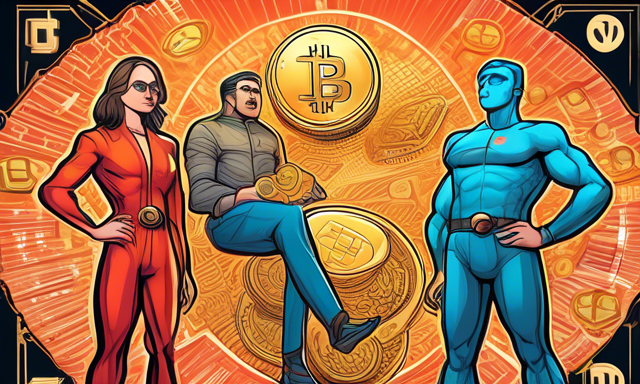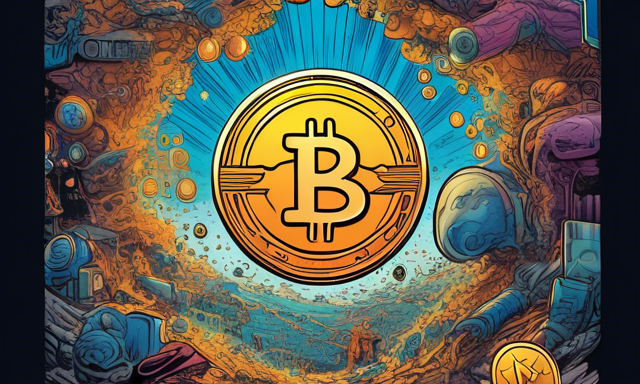What Does Turkey’s Crypto Shift Mean for Global Investors?
Hey there! So, you’re looking to dive deeper into the crypto world, and let’s talk about something super fascinating that’s happening over in Turkey. A recent survey by a cryptocurrency exchange called Paribu has shed light on how folks there are starting to view digital currencies when it comes to their investments. Let’s unpack this together, shall we?
Key Takeaways:
- Turkey shows a growing preference for cryptocurrencies over traditional investments.
- Awareness of digital assets has skyrocketed, with almost 99% of respondents familiar with crypto.
- While gold and foreign currency remain top investments, crypto is now a strong contender.
- There’s a gap in understanding blockchain technology that presents a huge opportunity for education.
The Survey: A Window into Crypto Adoption
Paribu conducted their “2024 Cryptocurrency Awareness and Perception Survey” with over 2,000 participants who are familiar with crypto and over 541 actively trading in the digital asset market. The results are pretty jaw-dropping. Gold is still king (56% of investors prefer it), but guess what? Cryptocurrencies have jumped ahead of real estate now. Three out of ten investors see digital currencies as a viable option! That’s huge, especially considering just a few years ago, awareness of crypto was at a mere 16%.
Now, think about it. In just a few years, from 2020 to 2024, this awareness went from essentially zero to nearly universal. This kind of shift shows a massive pivot in mindset—perhaps driven by the economic landscape with high inflation and a fluctuating lira in Turkey that has made people more open to exploring alternatives.
The Importance of Education: Understanding the Catch
Alright, here’s where it gets tricky. While almost everyone knows about crypto, only about 28% seem to grasp what blockchain technology is. That means a whopping 72% feel kinda lost when it comes to the actual tech behind the shiny coins. This is a big deal because it highlights a gap in knowledge that needs bridging. Education becomes key here. Many people are left scrambling to catch up, which could lead to risks in investing if they don’t fully understand what they’re getting into.
What This Means for Investors Like You
So, how does this all connect to you, the investor? Here are some practical tips:
-
Do Your Homework: With such a significant shift in how people view crypto, it’s vital to educate yourself. Understand not just what cryptocurrencies are but how they work, especially the underlying blockchain technology.
-
Watch for Trends: The Turkish case isn’t isolated. Similar trends are happening in other regions where economic instability drives people toward digital solutions. Keep an eye on these patterns to gauge where opportunities might arise.
-
Consider Diversification: If people in Turkey are moving away from real estate investments, it might be time to consider diversifying your portfolio if you haven’t already. Crypto could be a progressive addition, alongside other asset classes you’re comfortable with.
- Engage with Community: With the crypto space being so community-driven, engage in discussions on forums, attend local meetups (they’re really fun), or even online webinars. The more you interact, the more knowledge you gain—and that could spell money in the long run!
My Personal Insights
Honestly, watching this evolution from close quarters feels like we’re living in a pivotal moment for the financial world. Growing up in the U.S. while being connected to the global marketplace through my Korean roots, it’s inspiring to see how different regions respond to economic pressures. People are getting creative in managing their money, and it feels thrilling to be part of this digital asset explosion.
Also, don’t underestimate the effect of social proof. As more people start talking about crypto, more will follow. It’s like when your friend starts playing an obscure video game, and suddenly everyone’s invested in it—I bet you can relate!
Reflecting on the Future
To tie this all up, we’re watching a cultural and financial shift that could have global repercussions. As the Turkish investments evolve, so does the narrative around crypto. Will we see a spike in investments globally in digital assets as traditional methods become less favorable?
It really makes you think, doesn’t it? What do you think about cryptocurrency’s future as it takes a more substantial role in investment strategies worldwide?





 By
By
 By
By
 By
By
 By
By

 By
By